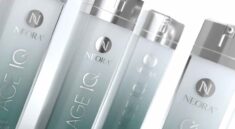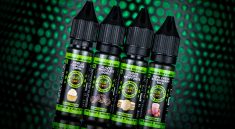If you’re planning to buy a juicer for your home, there are a few things you need to keep in mind. Aside from the price, they include how easy it is to assemble, disassemble, and clean. And you’ll also want to consider the differences between centrifugal and masticating juicers for sale.
Centrifugal vs masticating juicers
When it comes to choosing a juicer, there are two types to choose from. These are centrifugal and masticating. They each have their own benefits and drawbacks. However, it is important to decide which type is right for you.
Centrifugal juicers are the most common kind. They work by using a spinning blade and mesh filter to separate the pulp from the juice. They are usually more inexpensive than masticating juicers.
Masticating juicers, also known as slow juicers, use an auger to masticate the ingredients. The masticating process mimics the natural chewing mechanism of the human oral cavity. This process is more quiet and produces a higher yield of juice than a centrifugal juicer.
Both types of juicers can produce different types of juice. But if you want to get the most out of your fruit and vegetables, you may want to invest in a masticating juicer.
Feeder chute opening
There’s more to a juicer than just grinding veg and fruits of the sun. In fact, you’ll probably have more fun putting together your own scrumptious concoction than you will drinking the stuff. The best part is you can do it all on the cheap and the results are worth the schlep. Fortunately, it’s all about making the right decisions in the right order. To make the right decisions, it’s a good idea to do a bit of comparative shopping. One way to do this is by avoiding the hyped up juicers. For example, look for a model with a built in juice collector that’s not snobbish.
You might even want to consider a countertop model. Luckily, there’s a plethora of options on the market and a little knowledge will go a long way in putting you on the right path to juicing success.
Easy to assemble, disassemble, and clean
If you’re looking for a juicer that’s both effective and convenient, you’re probably on the hunt for one of the many types on the market. The good news is that many models feature waterproof components, making them a cinch to clean up after a hard day’s work.
While a number of manufacturers do a great job of making the process as painless as possible, there are some parts you’ll want to leave in the chute, and others you’ll want to keep out of the way. Luckily, there are a few best practices you can follow to make sure your juicer’s longevity isn’t compromised.
One of the easiest ways to clean up is by removing the blades. Once this is accomplished, you can rinse off the blades in the same water you used to wash the juice, and then run the blades under some tepid water to remove any rust that might have developed.
Warranty
If you want to purchase a juicer and keep it in your kitchen, you might want to look for one that comes with a warranty. This will allow you to replace the device if it breaks. The longer the warranty period, the better.
Juicers are expensive. For this reason, it is important to read the warranty carefully before making your final decision. Aside from that, you also need to consider your own needs and what you are willing to spend. Depending on your budget, you may not have as many options as you would if you were to choose a higher-end machine.
Most juicers come with a one-year limited warranty. You can also opt for an extended warranty if you find that you will be using the device for a long time.
Cost
There is a wide selection of juicers on the market today. It can be difficult to decide which one is the best. Here are some tips to help you select the right one.
If you plan on making your juice often, it may be worth investing in a higher-end model. These machines are usually more expensive, but they may also have extra features. For example, they can make purees, sauces, and nut butter.
Those who aren’t comfortable with noise can opt for silent juicers. Some machines even come with cleaning brushes.
When you’re searching for a juicer, choose a machine made from rust-free stainless steel. This will prevent the juice from oxidizing and contaminating your food.





